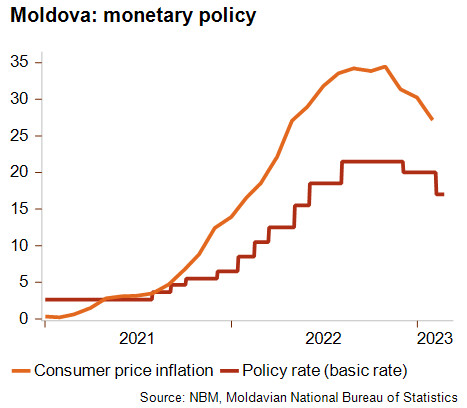Moldova: Heightened tensions with Russia

Event
On 22 February, Russian President Vladimir Putin revoked a 2012 decree, in which – among others – was pledged to respect Moldova’s sovereignty in resolving the status of Transnistria, a pro-Russian separatist region located at the Ukrainian border. Russian peacekeeping forces have been present in the breakaway region since the end of the short war in 1992.
Impact
The revocation, part of Mr Putin’s anti-Western moves, and accusation that Moldova is pushing an anti-Russian agenda are highlighting the heightened tensions between both countries. What is more, the Moldovan authorities accused Moscow of a coup attempt. In February, a new pro-Western government has been formed after the previous government resigned following months of economic turmoil and political tensions. The new government, led by Prime Minister Dorin Recean, vowed to continue on the pro-EU path of the country, that was granted EU candidate status in June 2022. Pro-Russian groups reacted by protesting against the newly formed government. Amid ongoing war in Ukraine, the main fear is that the conflict would extend to Moldova. However, this scenario is unlikely in the very short term as Russian troops are concentrating their efforts on Ukraine.

On the economic front, the country is hit hard by the fallouts from the war in Ukraine, notably amid a sharp increase in gas prices and disruption of energy supply. Real GDP growth is estimated to have contracted by 1.5% last year and lacklustre growth is expected for this year. Inflation surged, which led the central bank to increase its interest rate to stem inflation pressure (see graph), though the interest rate has been lowered again recently. The persistently high levels of inflation are fuelling social discontent in a country that is highly divided between pro-EU and pro-Russian factions. What is more, the fiscal and current account deficits have widened. However, after having declined in the first part of the year (see graph), the gross foreign exchange reserves are on the rise, thanks to the IMF support programme and financial support from the EU (partly in loans, which increases the external indebtedness).

In this precarious economic and political context, the outlook for the ST and MLT political risk is negative.
Analyst: Pascaline della Faille - P.dellaFaille@credendo.com